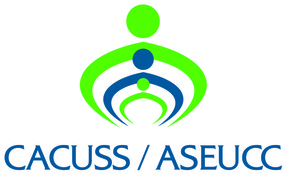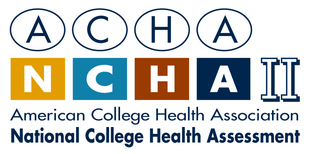By: Kandi McElary, Director of Wellness Services, Mount Royal University, COUCH Secretary and Kevin Friese, Assistant Director, University of Alberta, COUCH Prairie Region Representative

What an exciting time to be a student affairs professional! At no other time in our profession have we achieved the level of academic acceptance and discourse in which many of our respective institutions now engage. Much of the recognition and success that we enjoy can be attributed to the passion that we, as college health professionals, hold for student success and support. However, equally important for many of us has been the adoption of professional standards and the introduction of program review and evaluation. Assessing the realities of our student needs and the effectiveness of our community interventions has proven essential to many of our institutions as we have become increasingly accountable for the effective provision of student affairs on campus.
An exciting initiative came to fruition in spring 2013 for many working in Canadian post-secondary student health through the work of Canadian Organization of University and College Health (COUCH) members. COUCH is a division of the Canadian Association of College and University Student Services (CACUSS). Over 32 institutions agreed to participate for the first time ever in a nation-wide effort to gather student health data using the American College Health Association-National College Health Assessment (ACHA-NCHA).
Developed by the American College Health Association, the ACHA-NCHA is a self-reporting assessment tool intended to measure perceptions and realities of health and wellness in advanced education settings. Over 34,000 student respondents participated in the Canadian consortium survey, providing a data set specific to Canadian institutions (yes, there are differences between Canadian and American students). We have also collectively worked together to develop Provincial Reference Group reports in three provinces. We anticipate these reports being valuable in engaging provincial stakeholders in a dialogue to further the health and well-being of students.
For many Canadian institutions, this was their first time participating in the ACHA-NCHA. Exciting times indeed!
Others, like Mount Royal University and University of Alberta, have participated in the ACHA-NCHA multiple times. What benefits has participation in the survey afforded both our academies and our students? In truth, the data collected from our surveys has been instrumental in guiding a number of opportunities and initiatives.
An exciting initiative came to fruition in spring 2013 for many working in Canadian post-secondary student health through the work of Canadian Organization of University and College Health (COUCH) members. COUCH is a division of the Canadian Association of College and University Student Services (CACUSS). Over 32 institutions agreed to participate for the first time ever in a nation-wide effort to gather student health data using the American College Health Association-National College Health Assessment (ACHA-NCHA).
Developed by the American College Health Association, the ACHA-NCHA is a self-reporting assessment tool intended to measure perceptions and realities of health and wellness in advanced education settings. Over 34,000 student respondents participated in the Canadian consortium survey, providing a data set specific to Canadian institutions (yes, there are differences between Canadian and American students). We have also collectively worked together to develop Provincial Reference Group reports in three provinces. We anticipate these reports being valuable in engaging provincial stakeholders in a dialogue to further the health and well-being of students.
For many Canadian institutions, this was their first time participating in the ACHA-NCHA. Exciting times indeed!
Others, like Mount Royal University and University of Alberta, have participated in the ACHA-NCHA multiple times. What benefits has participation in the survey afforded both our academies and our students? In truth, the data collected from our surveys has been instrumental in guiding a number of opportunities and initiatives.

Of particular note, the ACHA-NCHA data was used by the University of Alberta (UofA) in successfully securing a $3,000,000 mental health grant from the Government of Alberta. This grant will help enhance campus mental health support services and address stigmatization associated with mental health and mental illness within our campus community. Furthermore, it will stimulate a dialogue on campus health and engage the whole community in developing healthy campus initiatives. The benefits of this grant are just starting to be seen as our campus integrates additional mental health clinicians into our existing campus resources.
The assessment data pertaining to the impacts of disease on academics has supported the UofA's decision to implement a disease in residence surveillance system with which to catch and manage disease outbreaks before they reach critical levels within our communal living settings. Similarly, statistics pertaining to sleep disorders, stress and anxiety has guided the development of the UofA's Heroes for Health campus grants program and the Unwind Your Mind Project.
At Mount Royal University (MRU), ACHA-NCHA participation began in 2006, followed by subsequent surveys in 2008, 2010, and 2013. In 2006 the data demonstrated a need for health promotion, so a position was created and a student peer health education program was developed. MRU was successful in accessing tobacco reduction funding, using the ACHA-NCHA data to provide evidence of this need. And based on the 2010 data and trends evidenced throughout the years, MRU's president founded a Presidential Task Force on Student Mental Health.
What is truly exciting about the initiatives highlighted at both of our academies is that the ACHA-NCHA has played an integral role in stimulating healthy campus dialogue and it has provided a common forum from which to collaboratively support the health and well-being of our students and staff. We all have a role to play in supporting the health of our respective communities and the ACHA-NCHA has provided a rich source of data with which to guide campus health programming.
With the Spring 2013 ACHA-NCHA behind us, the Canadian Reference Group reports are now available on the CACUSS website. These invaluable reports are available for all to use in supporting the health and well-being of our campus communities.
The assessment data pertaining to the impacts of disease on academics has supported the UofA's decision to implement a disease in residence surveillance system with which to catch and manage disease outbreaks before they reach critical levels within our communal living settings. Similarly, statistics pertaining to sleep disorders, stress and anxiety has guided the development of the UofA's Heroes for Health campus grants program and the Unwind Your Mind Project.
At Mount Royal University (MRU), ACHA-NCHA participation began in 2006, followed by subsequent surveys in 2008, 2010, and 2013. In 2006 the data demonstrated a need for health promotion, so a position was created and a student peer health education program was developed. MRU was successful in accessing tobacco reduction funding, using the ACHA-NCHA data to provide evidence of this need. And based on the 2010 data and trends evidenced throughout the years, MRU's president founded a Presidential Task Force on Student Mental Health.
What is truly exciting about the initiatives highlighted at both of our academies is that the ACHA-NCHA has played an integral role in stimulating healthy campus dialogue and it has provided a common forum from which to collaboratively support the health and well-being of our students and staff. We all have a role to play in supporting the health of our respective communities and the ACHA-NCHA has provided a rich source of data with which to guide campus health programming.
With the Spring 2013 ACHA-NCHA behind us, the Canadian Reference Group reports are now available on the CACUSS website. These invaluable reports are available for all to use in supporting the health and well-being of our campus communities.
 RSS Feed
RSS Feed